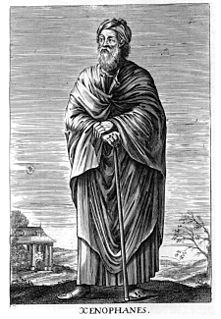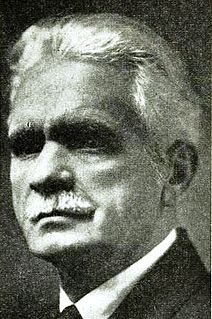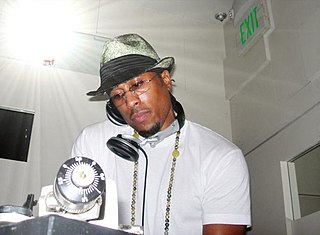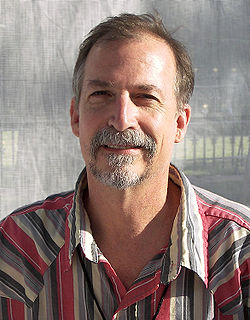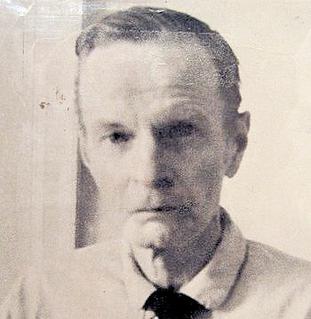Top 166 Similarity Quotes & Sayings - Page 3
Explore popular Similarity quotes.
Last updated on November 5, 2024.
We are finally living in Plato's cave, if we consider how those who were imprisoned within the cave - who could do nothing but watch those shadows passing on the back wall - were convinced that those shadows were their one and only reality. I see a profound similarity to all this in the epoch we're now living in. We no longer live simply through images: we live through images that don't even exist, which are the result not of physical projection but of pure virtuality.
In all these products, whether iron bridges, locomotives, automobiles, telescopes, cottages, airport-hangars, funicular railways, skyscrapers, or children's toys, the will towards a new style expresses itself. The similarity of these examples to the new creations in art consists in the same striving for clear, pure form which expresses truth in the objects.
Even though the play [ The Best Man] was written a long time ago, the characters seem modern and their struggles to make ends meet and to "have a little fun along the way" have a very contemporary feel. The similarity between the The Great Depression and The Great Recession - as well as the gulf between the super-rich and the ordinary Joe - still rings a bell. One of the things this production accentuates is how beautifully Grandpa and his family accept all kinds of people - rich or poor, black or white - and the best thing that can happen to you is to be part of a loving family.
When I say "The good man gave his good dog a good meal," I use "good" analogically, for there is at the same time a similarity and a difference between a good man, a good dog, and a good meal. All three are desirable, but a good man is wise and moral, a good dog is tame and affectionate, and a good meal is tasty and nourishing. But a good man is not tasty and nourishing, except to a cannibal; a good dog is not wise and moral, except in cartoons, and a good meal is not tame and affectionate, unless it's alive as you eat it.
In our civilization, there are permanent forms which are part of every epoch and every culture. They are not especially difficult to detect. A minimal knowledge of physics, astrophysics, and perhaps mathematics, brings to light certain patterns that make these subjects easier to understand. It is striking to see the extreme similarity between these scientific propositions and the forms that recur in all times, places and civilizations.
This good fellowship - camaraderie - usually occurring through the similarity of pursuits is unfortunately seldom super-added to love between the sexes, because men and women associate, not in their labors but in their pleasures merely. Where, however, happy circumstances permit its development, the compounded feeling proves itself to be the only love which is strong as death - that love which many waters cannot quench, nor the floods drown, besides which the passion usually called by the name is as evanescent as steam.
Modern literary theory sees a similarity between walking and writing that I find persuasive: words inscribe a text in the same way that a walk inscribes space. In The practicse of Everyday Life, Michel de Certeau writes, 'The act of walking is a process of appropriation of the topographical system on the part of the pedestrian; it is a special acting-out of the place...and it implies relations among differentiated positions.' I think this is a fancy way of saying that writing is one way of making the world our own, and that walking is another.
People (a group that in my opinion has always attracted an undue amount of attention) have often been likened to snowflakes. This analogy is meant to suggest that each is unique - no two alike. This is quite patently not the case. People, even at the current rate of inflation - in fact, people especially at the current rate of inflation - are quite simply a dime a dozen. And, I hasten to add, their only similarity to snowflakes resides in their invariably and lamentable tendency to turn, after a few warm days, to slush.
Haemoglobin is a very large molecule by ordinary standards, containing about ten thousand atoms, but the chances are that your haemoglobin and mine are identical, and significantly different from that of a pig or horse. You may be impressed by how much human beings differ from one another, but if you were to look into the fine details of the molecules of which they are constructed, you would be astonished by their similarity.
I think the ambiguity of similarity and difference is very powerful. It's the same scene in different times of year read across the grid, and, of course, different locations reading vertically. But you can get confused and lost in the series. You force the mind, which is always comparing and contrasting, to stumble ... That ambiguity is very powerful. One is getting lost and refinding oneself.
To challenge the dominance of identity politics, we need to champion an alternative universalist approach. This wouldn't mean bland similarity, with everybody talking and looking the same. Instead, it would help us challenge the imposition of formal, ethnic categories and allow us to develop richer differences based on character and interests.
Some of the beliefs and legends bequethed to us by Antquity are so universally and firmly established that we have become accustomed to consider them as being almost as ancient as humanity itself. Nevertheless we are tempted to inquire how far the fact that some of these beliefs and legends have so many features in common is due to chance, and wether the similarity between them may not point to the exestience of an ancient, totally unknown and unsuspected civilization of which all other traces have disappeared.
There is one god, greatest among gods and men, who bears no similarity to humans either in shape or thought... but humans believe that the gods are born like themselves, and that the gods wear clothes and have bodies like humans and speak in the same way... but if cows and horses or lions had hands or could draw with the hands and manufacture the things humans can make, then horses would draw the forms of gods like horses, cows like cows, and they would make the gods' bodies resemble those which each kind of animal had itself.
The similarity is that concentration of capital influences virtually everything that goes on. It influences the way the media functions, it very powerfully influences how the government works and it of course influences corporate sector elements, like say how Google or Amazon present materials that reach the public.
We've tended in our cosmologies to make things familiar. Despite all our best efforts, we've not been very inventive. In the West, Heaven is placid and fluffy, and Hell is like the inside of a volcano. In many stories, both realms are governed by dominance hierarchies headed by gods or devils. Monotheists talked about the king of kings. In every culture we imagined something like our own political system running the Universe. Few found the similarity suspicious.
Photons come out of nowhere, they cannot be stored, they can barely be pinned down in time, and they have no home in space whatsoever. That is, light occupies no volume and has no mass. The similarity between a thought and a photon is very deep. Both are born in a region beyond space and time where nature controls all processes in that void which is full of creative intelligence.
Everybody has similar values. You travel around the world and everybody is different, but everybody is also the same in those ways. There's so much difference but there's so much similarity. Nobody wants to be harmed, or have their children, or their mates, or their relatives, or their families harmed, exploited, bombed, starved, dislocated, or become homeless refugees. So we're all similar in that way and spiritual life and religion is supposed to be part of the solution not part of the problem.
Nature is a greater and more perfect art, the art of God; though, referred to herself, she is genius; and there is a similarity between her operations and man's art even in the details and trifles. When the overhanging pine drops into the water, by the sun and water, and the wind rubbing it against the shore, its boughs are worn into fantastic shapes, and white and smooth, as if turned in a lathe. Man's art has wisely imitated those forms into which all matter is most inclined to run, as foliage and fruit.
The revival of Hebrew, as a spoken language, is a fascinating story, which I'm afraid I cannot squeeze into a few sentences. But, let me give you a clue. Think about Elizabethan English, where the entire English language behaved pretty much like molten lava, like a volcano in mid-eruption. Modern Hebrew has some things in common with Elizabethan English. It is being reshaped and it's expanding very rapidly in various directions. This is not to say that every one of us Israeli writers is a William Shakespeare, but there is a certain similarity to Elizabethan English.
Acting is always sort of the same - like you want to be - you know you're pretending and you want to make it as real as you can. That's the similarity. The mediums other than that are completely different. I mean you know with camera work you're doing really small detailed work and you know if you do anything too big you've sort of failed. And with stage, especially with the play I'm doing right now, I'm doing a farce, and it's so over the top that you can't actually be too big. So it's just completely different.
Chess is a very positive way to exercise your mind. It makes you look at the whole picture...what are your options and what is the best thing to do? In football, you are mostly reacting from a defensive point of view...but you always want to be counterattacking...a similarity with chess strategy. Chess and offensive football are quite similar; you sacrifice something now to get something back later.
I've always identified people's taste in music as being kind of hetero and/or homo - there's music people like because they feel like they have aesthetic similarity to it and the music they wish to create, and then there's music that represents the other, that they listen to because it represents an escape from the music that they have to make.
Did Ethan Smith's View of the Hebrews furnish structural material for Joseph Smith's Book of Mormon? It has been pointed out in these pages that there are many things in the former book that might well have suggested many major things in the other.Not a few things merely, one or two, or half dozen, but many; and it is this fact of many things of similarity and the cumulative force of them that makes them so serious a menace to Joseph Smith's story of the Book of Mormon's origin
I saw him playing on television and was struck by his technique, so I asked my wife to come look at him. Now I never saw myself play, but I felt that this player is playing with a style similar to mine, and she looked at him on Television and said yes, there is a similarity between the two...his compactness, technique, stroke production - it all seemed to gel!
Look at the world of both film and indie games, and you'll find a startling similarity between the two when it comes to creating the perfect horror story. The tricks storytellers pull to make your blood run cold never change; a creaking floorboard, the eerie feeling of being watched, wandering into a world filled with unspeakable terror.
The gods in Yoruba mythology are not remote at all. They're benign, they're malign, they are mischievous, like Eshu for instance, tricksters, rascally, fornicators, that's a similarity to Greek mythology, for instance, you know. They're not saints, they're not saints. They're powerful. It's why they're not tyrannical. Of course, a number of them are also very, you know, benevolent, you know, there are saintly virtues to be found in them.
Some people are like ants. Give them a warm day and a piece of ground and they start digging. There the similarity ends. Ants keepon digging. Most people don't. They establish contact with the soil, absorb so much vernal vigor that they can't stay in one place, and desert the fork or spade to see how the rhubarb is coming and whether the asparagus is yet in sight.
There is an old Italian proverb about the nature of translation: "Traddutore, traditore!" This means simply, "Translators-traitors!" Of course, as you can see, something is lost in the translation of this pithy expression: there is great similarity in both the spelling and the pronunciation of the original saying, but these get diluted once they are put in English dress. Even the translation of this proverb illustrates its truth!
Much of the left's hate speech bears greater similarity to a psychological disorder than to standard political discourse. The hatred is blinding, producing logical contradictions that would be impossible to sustain were it not for the central element faith plays in the left's new religion. The basic tenet of their faith is this: Maybe they were wrong about their facts and policies, but they are good and conservatives are evil. You almost want to give it to them. It's all they have left.
I've always been interested in the principle of the fractal, which is typified by self-similarity across scale, which both puts a lot of pressure on a specific viewer's perspective and opens up the number of "correct" viewing positions infinitely, in this way thwarting the power-related implications of traditional, Renaissance single-point perspective.
The preliminaries were out of the way, the creative process was about to begin. The creative process, that mystic life force, that splurge out of which has come the Venus de Milo, the Mona Lisa, the Fantasie Impromptu, the Bayeux tapestries, Romeo and Juliet, the windows of Chartres Cathedral, Paradise Lost - and a pulp murder story by Dan Moody. The process is the same in all; if the results are a little uneven, that doesn't invalidate the basic similarity of origin.
The Jews don't like Farrakhan, so they call me Hitler. Well, that's a good name. Hitler was a very great man. He wasn't a great man for me as a black person, but he was a great German. Now, I'm not proud of Hitler's evils against Jewish people, but that's a matter of record. He raised Germany up from nothing. Well, in a sense you could say there's a similarity in that we are raising our people up from nothing.
The unhappy are egoistic, spiteful, unjust, cruel, and less capable of understanding each other than fools. Unhappiness does not bring people together but draws them apart, and even where one would fancy people should be united by the similarity of their sorrow, far more injustice and cruelty is generated than in comparatively placid surroundings.
I've seen so many excellent actors - excellent actors - who, the minute they're told they're in a comedy, turn into God knows what - creatures from another planet! I mean they just... the voice changes, they don't look the same, it's like - it has no similarity to any living human being, do you know what I mean?
Brother raises a hand against brother and son against father (how terrible!) and the father also against son. And moreover it is a continuity-matter, for if the father did not strike the son, they would not be alike. It is done to perpetuate similarity. Oh, Henderson, man cannot keep still under the blows.... A hit B? B hit C?--we have not enough alphabet to cover the condition. A brave man will try to make the evil stop with him. He shall keep the blow. No man shall get it from him, and that is a sublime ambition.
I think I was drawn to the harpsichord because of the similarity of touch between the harpsichord and the tracker organ. When you press a key on the harpsichord, the pluck of the string gives a slight resistance similar to the feel of depressing a key on a tracker organ. Also, harpsichordists and organists use much less wrist and body motion than pianists, and we do not need the upper body muscles required by pianists.
Compared with men, it is probable that brutes neither attend to abstract characters, nor have associations by similarity. Their thoughts probably pass from one concrete object to its habitual concrete successor far more uniformly than is the case with us. In other words, their associations of ideas are almost exclusively by contiguity. So far, however, as any brute might think by abstract characters instead of by association of con cretes, he would have to be admitted to be a reasoner in the true human sense. How far this may take place is quite uncertain.
The parallel between antifeminism and race prejudice is striking. The same underlying motives appear to be at work, namely fear, jealousy, feelings of insecurity, fear of economic competition, guilt feelings, and the like. Many of the leaders of the feminist movement in the nineteenth-century United States clearly understood the similarity of the motives at work in antifeminism and race discrimination and associated themselves with the anti slavery movement.
There is a fundamental similarity between the persecution of individuals who engage in consenting homosexual activity in private, or who ingest, inject, or smoke various substances that alter their feelings and thoughts - and the traditional persecution of men for their religion... What all of these persecutions have in common is that the victims are harassed by the majority not because they engage in overtly aggressive or destructive acts... but because their conduct or appearance offends a group intolerant to and threatened by human differences.













